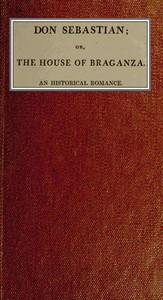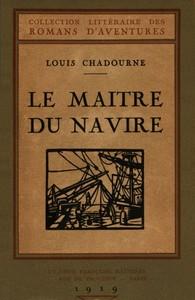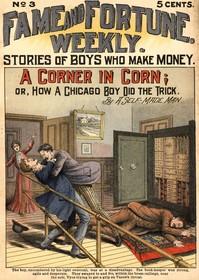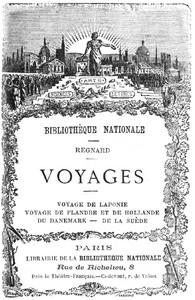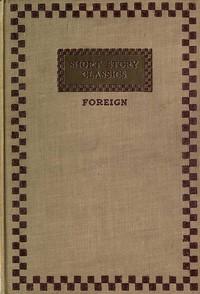|
|
Read this ebook for free! No credit card needed, absolutely nothing to pay.Words: 46415 in 12 pages
This is an ebook sharing website. You can read the uploaded ebooks for free here. No credit cards needed, nothing to pay. If you want to own a digital copy of the ebook, or want to read offline with your favorite ebook-reader, then you can choose to buy and download the ebook.

: Don Sebastian; or The house of the Braganza: An historical romance. vol. 1 by Porter Anna Maria - Sebastião King of Portugal 1554-1578 Fiction@FreeBooksThu 08 Jun, 2023 CHARACTERISTICS OF VICTORIAN LITERATURE That which in England is conveniently described as the Victorian Age of literature has a character of its own, at once brilliant, diverse, and complex. It is an age peculiarly difficult to label in a phrase; but its copious and versatile gifts will make it memorable in the history of modern civilisation. The Victorian Age, it is true, has no Shakespeare or Milton, no Bacon or Hume, no Fielding or Scott--no supreme master in poetry, philosophy, or romance, whose work is incorporated with the thought of the world, who is destined to form epochs and to endure for centuries. Its genius is more scientific than literary, more historical than dramatic, greater in discovery than in abstract thought. In lyric poetry and in romance our age has names second only to the greatest; its researches into nature and history are at least equal to those of any previous epoch; and, if it has not many great philosophers, it has developed the latest, most arduous, most important of all the sciences. This is the age of Sociology: its central achievement has been the revelation of social laws. This social aspect of thought colours the poetry, the romance, the literature, the art, and the philosophy of the Victorian Age. Literature has been the gainer thereby in originality and in force. It has been the loser in symmetry, in dignity, in grace. The Victorian Age is a convenient term in English literature to describe the period from 1837 to 1895: not that we assign any sacramental efficacy to a reign, or assume that the Queen has given any special impulse to the writers of her time. Neither reigns, nor years, nor centuries, nor any arbitrary measure of time in the gradual evolution of thought can be exactly applied, or have any formative influence. A period of so many years, having some well-known name by which it can be labelled, is a mere artifice of classification. And of course an Englishman will not venture to include in his survey the American writers, or to bring them within his national era. The date, 1837, is an arbitrary point, and a purely English point. Yet it is curious how different a colour may be seen in the main current of the English literature produced before and after that year. In the year of the Queen's accession to the throne, the great writers of the early part of this century were either dead or silent. Scott, Byron, Shelley, Keats, Coleridge, Lamb, Sheridan, Hazlitt, Mackintosh, Crabbe, and Cobbett, were gone. There were still living in 1837, Wordsworth, Southey, Campbell, Moore, Jeffrey, Sydney Smith, De Quincey, Miss Edgeworth, Miss Mitford, Leigh Hunt, Brougham, Samuel Rogers:--living, it is true, but they had all produced their important work at some earlier date. Carlyle, Dickens, Thackeray, Macaulay, Tennyson, Browning, had begun to write, but were not generally known. The principal English authors who belong equally to the Georgian and to the Victorian Age are Landor, Bulwer, Disraeli, Hallam, and Milman, and they are not quite in the very first rank in either age. It is a significant fact that the reign of the Queen has produced, with trifling exceptions, the whole work of Tennyson, the Brownings, Thackeray, Dickens, the Bront?s, George Eliot, Kingsley, Trollope, Spencer, Mill, Darwin, Ruskin, Grote, Macaulay, Freeman, Froude, Lecky, Milman, Green, Maine, Matthew Arnold, Symonds, Rossetti, Swinburne, Morris, John Morley, to say nothing of younger men who are still in their prime and promise. Our literature to-day has many characteristics: but its central note is the dominant influence of Sociology--enthusiasm for social truths as an instrument of social reform. It is scientific, subjective, introspective, historical, archaeological:--full of vitality, versatility, and diligence:--intensely personal, defiant of all law, of standards, of convention:--laborious, exact, but often indifferent to grace, symmetry, or colour:--it is learned, critical, cultured:--with all its ambition and its fine feeling, it is unsympathetic to the highest forms of the imagination, and quite alien to the drama of action. Side by side with such chastened literary art as that of Thackeray and George Eliot, Matthew Arnold and John Morley, Lecky and Froude, Maine and Symonds, side by side with a Carlylese tendency to extravagance, slang, and caricature, we find another vein in English prose--the flat, ungainly, nerveless style of mere scientific research. What lumps of raw fact are flung at our heads! What interminable gritty collops of learning have we to munch! Through what tangles of uninteresting phenomena are we not dragged in the name of Research, Truth, and the higher Philosophy! Mr. Mill and Mr. Spencer, Mr. Bain and Mr. Sidgwick, have taught our age very much; but no one of them was ever seen to smile; and it is not easy to recall in their voluminous works a single irradiating image or one monumental phrase. There are eminent historians to-day who disdain the luminous style of Hume and Robertson, and yet deride the colour and fire of Gibbon. Grote poured forth the precious contents of his portentous notebooks with as little care for rhythm and as little sense of proportion as a German professor. Freeman and Gardiner have evidently trained themselves in the same school of elaborate learning, till they would appear to count the graceful English of Froude, Lecky, and Green as hardly becoming the dignity of history. It would seem as if the charge which some of our historians are most anxious to avoid is the charge of being "readable," and of keeping to themselves any fact that they know. From the death of Scott in 1832 until 1894 are sixty-two years; and if we divide this period into equal parts at the year 1863 , we shall be struck with the fact that the purely literary product of the first period of thirty-one years is superior to the purely literary product of the second period of thirty-one years . The former period gives us all that was best of Tennyson, the Brownings, Carlyle, Thackeray, Dickens, Bulwer, the Bront?s, Mrs. Gaskell, Trollope, George Eliot, Kingsley, Disraeli, Dr. Arnold, Thirlwall, Grote, Hallam, Milman, Macaulay, Mill, Froude, Layard, Kinglake, Ruskin. The second period gave us in the main, Darwin, Spencer, Huxley, G. H. Lewes, Maine, Leslie Stephen, John Morley, Matthew Arnold, Lecky, Freeman, Stubbs, Bryce, Green, Gardiner, Symonds, Rossetti, Morris, Swinburne. Poetry, romance, the critical, imaginative, and pictorial power, dominate the former period: philosophy, science, politics, history are the real inspiration of the latter period. Poetry began to hover round the problem of Evolution. It wrapped it in mystery, denounced it with fine indignation, and took it for the text of some rather prosaic homilies. Criticism fell into the prevailing theory: so did history, and even romance. Philosophy and Science are not the best foster-mothers of Poetry and Romance. Philosophy and Science grew more solemn than ever; and Poetry and Romance lost something of their wilder fancy and their light heart. Literature grew less spontaneous, more correct, more learned, and, it may be, more absorbed in its practical purpose of modifying social life. The old notion of literature being a business apart from affairs, of men of letters being an order, of an absorption in books being ample work for a life--all this is far from the rule. At least twenty members of the present and late Governments have been copious writers; Mr. Gladstone and at least three or four of his late colleagues are quite in the front rank of living authors--nay, several of them began their career as literary men. It would be difficult to name an important writer of the Victorian Age who has not at times flung himself with ardour into the great social, political, or religious battles of his time. Thackeray, Trollope, Green, Symonds, are possible exceptions--examples of bookmen who passed their lives with books, and who never wrote to promote "a cause." But all the rest have entered on the "burning questions" of their age, and most of them with the main part of their force. As a consequence "learning," as it was understood by Casaubon, Scaliger, Bentley, Johnson, and Gibbon, as it was understood by Littr?, D?llinger, and Mommsen, may be said to have disappeared in England. Cardinal Newman, Mark Pattison, Dr. Pusey, were said to be very learned, but it was a kind of learning which kept very much to itself. For good or for evil, our literature is now absorbed in the urgent social problem, and is become but an instrument in the vast field of Sociology--the science of Society. This predominance of Sociology, the restless rapidity of modern life, the omnipresence of material activity, fully account for the special character of modern literature. Literature is no longer "bookish"--but practical, social, propagandist. It is full of life--but it is a dispersive, analytic, erratic form of vitality. It has a most fastidious taste in form--but it often flings the critical spirit aside in its passion for doing, in its ardour to convince and to inspire. It is industrious, full of learning and research--but it regards its learning as an instrument of influence, not as an end of thought. It can work up a poem or an essay, as carefully as Mieris or Breughel polished a cabinet picture--and it can "tear a passion to tatters," or tumble its note-books into a volume all in a heap. It has no "standard," no "model," no "best writer"--and yet it has a curious faculty for reviving every known form and imitating any style. It is intensely historical, but so accurately historical that it is afraid to throw the least colour of imagination around its history. It has consummate poetic feeling, and copious poetic gifts--but it has now no single poet of the first rank. It has infinite romantic resources, and an army of skilful novelists--and yet it has no single living writer worthy to be named beside the great romancers of the nineteenth century. This rich, many-sided, strenuous literature, which will place the name of Victoria higher than that of Elizabeth in the history of our language, would form a splendid subject hereafter for some one of our descendants who was equal to the task of treating our Victorian literature as a whole. In the meantime, it may be worth while for the men and women of to-day, who are full of all the excellent work around us, to be reminded of the good things produced now nearly sixty years ago. As one who can remember much that was given to the world in a former generation, I shall endeavour in these little sketches to mark some of the characteristics of the best writers in the early Victorian Age, confining myself for the present to prose literature of the imaginative kind. Free books android app tbrJar TBR JAR Read Free books online gutenberg More posts by @FreeBooks
: Le Maître du Navire by Chadourne Louis Daragn S J G Jean Gabriel Illustrator - French fiction 20th century@FreeBooksThu 08 Jun, 2023

: A corner in corn; or How a Chicago boy did the trick by Self Made Man - Chicago (Ill.) Fiction; Dime novels; Success Fiction@FreeBooksThu 08 Jun, 2023
|
Terms of Use Stock Market News! © gutenberg.org.in2025 All Rights reserved.

